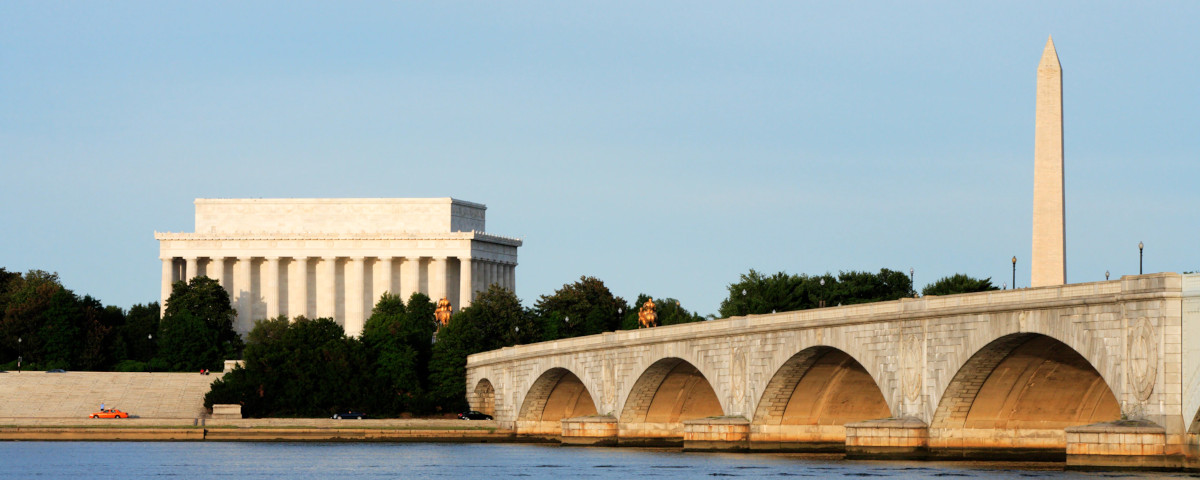Nonprofits Provide Support for D.C.-area Small Businesses
Capital One helps local nonprofits work to support the small business community of Greater Washington


Community-based nonprofits have been an essential resource for small businesses in navigating how best to safely operate during the COVID-19 pandemic.
Why it matters: With the looming uncertainty of additional government financial aid coupled with seasonal businesses entering their busy or quiet periods, nonprofit organizations are playing a critical role in helping small businesses adapt and strengthen the communities they serve.
Small businesses play a critical role in local economies across the country and:
In Washington, D.C., small businesses employ nearly 75 percent of the region’s total workforce.
Of the 56,400 D.C.-based jobs lost between December 2019 and September 2020, nearly 63 percent came from the hospitality, entertainment and retail sectors.
Capital One is providing grants and other support to community nonprofits in Greater Washington so they can continue to provide small businesses with essential services and resources.
By the numbers: A recent survey from Capital One Business found that 61 percent of small businesses are in need of more practical advice and tools, like trainings or consulting support, to help them address different areas of running a business during the pandemic.
Strength in Numbers
Recognizing that need, The Greater Washington Hispanic Chamber of Commerce Foundation, the Washington DC Economic Partnership, the DC Fashion Foundation, and The Greater Washington Community Foundation each worked to help the small business community pivot and respond to the pressing issues at hand.
The Greater Washington Hispanic Chamber of Commerce Foundation has provided mentorship and technical assistance to help BIPOC open successful businesses in the District of Columbia for 39 years. The Greater Washington Hispanic Chamber of Commerce Foundation shifted its planned series of workshops to address subject areas that are of great concern to low-and-middle-income small business owners as COVID-19 forced many to reprioritize.
35 virtual webinars and workshops covered topics ranging from building a financial roadmap to securing healthcare benefits during COVID-19 for small businesses and their employees.
One of the attendees was the owner of a childcare business who was forced to significantly reduce her operations as a result of COVID-19.
After attending a webinar on how to apply for emergency funds, she worked with a Greater Washington Hispanic Chamber of Commerce Foundation consultant to apply for a Paycheck Protection Program loan to cover her payroll expenses.
DC BizChat similarly pivoted its long-running workshop series, hosted by the Washington DC Economic Partnership, to become more relevant to business owners’ current needs. Virtual BizChats covered timely topics such as digital and social marketing strategies for B2B companies, using crowdfunding to raise much-needed capital and leveraging mergers and acquisitions to grow a business. More than 300 business owners attended the sessions, which were all recorded and shared via the Washington DC Economic Partnership website to maximize accessibility.
The DC Fashion Foundation, a nonprofit organization supporting the local fashion industry, also played a key role in assisting small businesses in the area by expanding its support beyond designers to include creative entrepreneurs and business owners from all industries.
DC Fashion Foundation partnered with Mess Hall DC, an incubator for DC-based food entrepreneurs, in March to host a workshop for Mess Hall members on establishing and maintaining good business credit. The event was presented by one of Capital One’s Financial Access Educators and structured to offer practical advice on financial well-being, particularly budgeting during the pandemic.
“Small businesses are under an incredible amount of pressure and time constraints trying to survive amidst the pandemic, so it’s critical to focus on the topics that are most relevant to each business,” said Jo Sanchez, Senior Manager, Community Impact and Investment at Capital One. “Even in a virtual environment, it’s more important than ever to deliver this programming and find time for business owners to connect, learn from one another and recognize that they are not alone.”
The Greater Washington Community Foundation is a tax-exempt public charity that manages hundreds of charitable giving funds on behalf of generous individuals, families, and businesses in the Washington, D.C. metro area.
In early March, the organization made the decision to cancel its annual fundraising gala, an event that typically raises over $750,000 for its work with nonprofits. Despite canceling the event, a majority of the event’s sponsors maintained their level of support and most attendees donated the price of their ticket. As the organization’s focus pivoted from the event to coordinating a response to the emerging public health crisis, The Community Foundation established the COVID-19 Emergency Response Fund.
“Through the COVID-19 Emergency Response Fund, one of our priorities was to help mitigate the economic impact of reduced wages and lost work for low-wage workers and small business owners unable to operate during the pandemic,” said Tonia Wellons, President and CEO of the Greater Washington Community Foundation.
Contributions to the fund focused on addressing the urgent health and economic needs of the Greater Washington region, especially for low-income households and communities of color who have been adversely affected by the pandemic. To date, the Community Foundation has disbursed $10 million in grants from the COVID-19 Emergency Response Fund and helped direct an additional $25 million in parallel giving from donor funds to nonprofit organizations across the region.
In November, The Community Foundation provided grants to 173 small businesses in Prince George’s County, Maryland, part of the organization’s recently-launched Legacy Fund for Small Business Development. The grants resulted in the retention of more than 650 full time jobs and provided the funding that businesses need for technology and other business enhancements.
“Small businesses are a critical part of our region’s economic engine and a key driver of economic mobility for many residents,” said Wellons. “With the generous support from our community, we were able to fund several nonprofit partners providing direct financial and other kinds of technical assistance to small or micro businesses, hourly and gig economy workers, and contractors, especially those who do not qualify for other forms of local or federal assistance.”
 G.H.M. / D.E.P.I. Corporate Sponsorship & Platinum Support Zone
Zone 2A - AVAILABLE FOR ADVERTISING
G.H.M. / D.E.P.I. Corporate Sponsorship & Platinum Support Zone
Zone 2A - AVAILABLE FOR ADVERTISING
 G.H.M. / D.E.P.I. Corporate Sponsorship & Platinum Support Zone
Zone 2B - AVAILABLE FOR ADVERTISING
G.H.M. / D.E.P.I. Corporate Sponsorship & Platinum Support Zone
Zone 2B - AVAILABLE FOR ADVERTISING
 G.H.M. / D.E.P.I. Corporate Sponsorship & Platinum Support Zone
Zone 2C - AVAILABLE FOR ADVERTISING
G.H.M. / D.E.P.I. Corporate Sponsorship & Platinum Support Zone
Zone 2C - AVAILABLE FOR ADVERTISING
Corporate Sponsorship & Community Business News:
Nonprofits Provide Support for D.C.-area Small Businesses
Capital One helps local nonprofits work to support the small business community of Greater Washington


Community-based nonprofits have been an essential resource for small businesses in navigating how best to safely operate during the COVID-19 pandemic.
Why it matters: With the looming uncertainty of additional government financial aid coupled with seasonal businesses entering their busy or quiet periods, nonprofit organizations are playing a critical role in helping small businesses adapt and strengthen the communities they serve.
Small businesses play a critical role in local economies across the country and:
In Washington, D.C., small businesses employ nearly 75 percent of the region’s total workforce.
Of the 56,400 D.C.-based jobs lost between December 2019 and September 2020, nearly 63 percent came from the hospitality, entertainment and retail sectors.
Capital One is providing grants and other support to community nonprofits in Greater Washington so they can continue to provide small businesses with essential services and resources.
By the numbers: A recent survey from Capital One Business found that 61 percent of small businesses are in need of more practical advice and tools, like trainings or consulting support, to help them address different areas of running a business during the pandemic.
Strength in Numbers
Recognizing that need, The Greater Washington Hispanic Chamber of Commerce Foundation, the Washington DC Economic Partnership, the DC Fashion Foundation, and The Greater Washington Community Foundation each worked to help the small business community pivot and respond to the pressing issues at hand.
The Greater Washington Hispanic Chamber of Commerce Foundation has provided mentorship and technical assistance to help BIPOC open successful businesses in the District of Columbia for 39 years. The Greater Washington Hispanic Chamber of Commerce Foundation shifted its planned series of workshops to address subject areas that are of great concern to low-and-middle-income small business owners as COVID-19 forced many to reprioritize.
35 virtual webinars and workshops covered topics ranging from building a financial roadmap to securing healthcare benefits during COVID-19 for small businesses and their employees.
One of the attendees was the owner of a childcare business who was forced to significantly reduce her operations as a result of COVID-19.
After attending a webinar on how to apply for emergency funds, she worked with a Greater Washington Hispanic Chamber of Commerce Foundation consultant to apply for a Paycheck Protection Program loan to cover her payroll expenses.
DC BizChat similarly pivoted its long-running workshop series, hosted by the Washington DC Economic Partnership, to become more relevant to business owners’ current needs. Virtual BizChats covered timely topics such as digital and social marketing strategies for B2B companies, using crowdfunding to raise much-needed capital and leveraging mergers and acquisitions to grow a business. More than 300 business owners attended the sessions, which were all recorded and shared via the Washington DC Economic Partnership website to maximize accessibility.
The DC Fashion Foundation, a nonprofit organization supporting the local fashion industry, also played a key role in assisting small businesses in the area by expanding its support beyond designers to include creative entrepreneurs and business owners from all industries.
DC Fashion Foundation partnered with Mess Hall DC, an incubator for DC-based food entrepreneurs, in March to host a workshop for Mess Hall members on establishing and maintaining good business credit. The event was presented by one of Capital One’s Financial Access Educators and structured to offer practical advice on financial well-being, particularly budgeting during the pandemic.
“Small businesses are under an incredible amount of pressure and time constraints trying to survive amidst the pandemic, so it’s critical to focus on the topics that are most relevant to each business,” said Jo Sanchez, Senior Manager, Community Impact and Investment at Capital One. “Even in a virtual environment, it’s more important than ever to deliver this programming and find time for business owners to connect, learn from one another and recognize that they are not alone.”
The Greater Washington Community Foundation is a tax-exempt public charity that manages hundreds of charitable giving funds on behalf of generous individuals, families, and businesses in the Washington, D.C. metro area.
In early March, the organization made the decision to cancel its annual fundraising gala, an event that typically raises over $750,000 for its work with nonprofits. Despite canceling the event, a majority of the event’s sponsors maintained their level of support and most attendees donated the price of their ticket. As the organization’s focus pivoted from the event to coordinating a response to the emerging public health crisis, The Community Foundation established the COVID-19 Emergency Response Fund.
“Through the COVID-19 Emergency Response Fund, one of our priorities was to help mitigate the economic impact of reduced wages and lost work for low-wage workers and small business owners unable to operate during the pandemic,” said Tonia Wellons, President and CEO of the Greater Washington Community Foundation.
Contributions to the fund focused on addressing the urgent health and economic needs of the Greater Washington region, especially for low-income households and communities of color who have been adversely affected by the pandemic. To date, the Community Foundation has disbursed $10 million in grants from the COVID-19 Emergency Response Fund and helped direct an additional $25 million in parallel giving from donor funds to nonprofit organizations across the region.
In November, The Community Foundation provided grants to 173 small businesses in Prince George’s County, Maryland, part of the organization’s recently-launched Legacy Fund for Small Business Development. The grants resulted in the retention of more than 650 full time jobs and provided the funding that businesses need for technology and other business enhancements.
“Small businesses are a critical part of our region’s economic engine and a key driver of economic mobility for many residents,” said Wellons. “With the generous support from our community, we were able to fund several nonprofit partners providing direct financial and other kinds of technical assistance to small or micro businesses, hourly and gig economy workers, and contractors, especially those who do not qualify for other forms of local or federal assistance.”
Source: capitalone.com
 G.H.M. / D.E.P.I. Corporate Sponsorship & Platinum Support Zone
Zone 2A - AVAILABLE FOR ADVERTISING
G.H.M. / D.E.P.I. Corporate Sponsorship & Platinum Support Zone
Zone 2A - AVAILABLE FOR ADVERTISING
 G.H.M. / D.E.P.I. Corporate Sponsorship & Platinum Support Zone
Zone 2B - AVAILABLE FOR ADVERTISING
G.H.M. / D.E.P.I. Corporate Sponsorship & Platinum Support Zone
Zone 2B - AVAILABLE FOR ADVERTISING
 G.H.M. / D.E.P.I. Corporate Sponsorship & Platinum Support Zone
Zone 2C - AVAILABLE FOR ADVERTISING
G.H.M. / D.E.P.I. Corporate Sponsorship & Platinum Support Zone
Zone 2C - AVAILABLE FOR ADVERTISING
From the same category

Welcome to G.H.M. Media
The Global Healthcare Markets Expo and the Global Healthcare Markets Magazine are opening in your local market.

Global Healthcare Markets Media & Expo
Sponsorship Package

